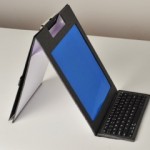Why us?
Local Manufacturing.
Unlike other vendors who plan to move manufacturing only to Africa, our device will both be designed by local African engineers and manufactured locally in Africa, thereby giving opportunity to a much broader cross section of skilled professionals.
 Cost Effectiveness.
Cost Effectiveness.
Our devices will be extremely cost effective. Due to an innovative design using mostly standard off-the shelf parts, as well as due to an innovative business model, our devices will be African Shillings 2000-5000 per device thus allowing the government’s planned expenditure to provide devices not only for one year group of students but potentially for all years in primary and secondary school students.
Potential effect of mass deployment.
The dramatic difference in price will allow mass deployment over a short period of time rather than deployment that is staged year by year over the course of more than a decade. This mass deployment will enable a complete transformation of literacy and workforce exposure to technology in a single generation and by educating the workforce and raising the technological capability of the workforce thereby setting the stage to both raise the African standard of living and better equipping the workforce for employment in the jobs of the future.
 Partnership with African Universities.
Partnership with African Universities.
Our proposed partnership with universities that will see hundreds of university students educated is only possible because of the Distributed Development Management (DDM) methodology we alone are pioneering. The DDM is intended to reduce management overhead so tasks can cost effectively be spread over a greater number of team members, and to lower the difficulty of contributing within complex projects so that deeply complex industries become possible within Africa. No equivalent to the DDM exists in any other company in the world.
We intend to partner with local universities and we have already received tremendous support from The University of Nairobi and Jomo Kenyatta University of Agriculture and Technology who have been impressed by our proposal and wish to partner with us in this venture to transform the African education system.
Open Sourcing Designs.
Our proposals to potentially bring semiconductor (SoC) and LCD manufacturing to Africa will create high tech industries  where none has existed before and employ potentially thousands of African engineers. These proposals are only possible because of the open source model we are using which will enable us to engage universities and train university students to a far greater degree than any other vendor, and these proposals are only possible again because of the DDM methodology we are developing to enable that engagement. No other company has any plan to bring a full high tech industry to Africa.
where none has existed before and employ potentially thousands of African engineers. These proposals are only possible because of the open source model we are using which will enable us to engage universities and train university students to a far greater degree than any other vendor, and these proposals are only possible again because of the DDM methodology we are developing to enable that engagement. No other company has any plan to bring a full high tech industry to Africa.
Impact on Healthcare.
Our devices will not only impact the education sector but will transform the healthcare system as well this is because the cost of the EHR/Single Virtual Patient Record proposal may be over 80% hardware related.As a very low cost computing device not only for primary and secondary schools in sub-Saharan Africa but also for telemedicine in remote rural clinics the device is an integral part of a solution we have proposed to the Ministry of Health for a National Electronic Health Record (EHR)/Single Patient Record solution. The computer we build will also dramatically reduce the cost of our proposed project to convert African’s health care system from paper to electronic records, as well as to introduce a single virtual patient record.
